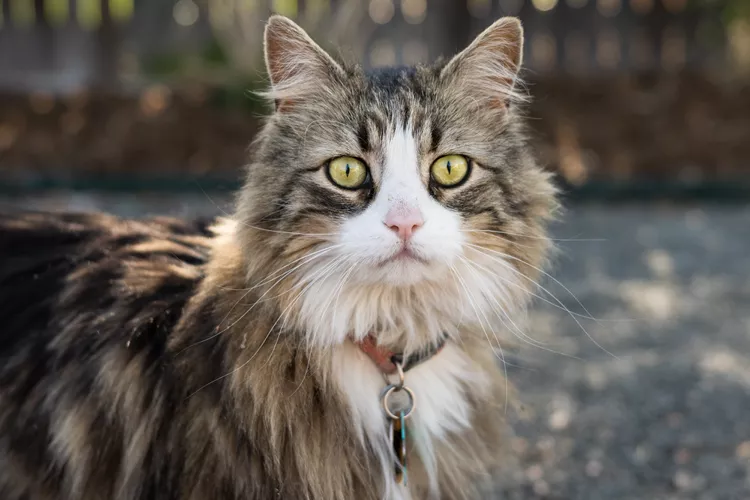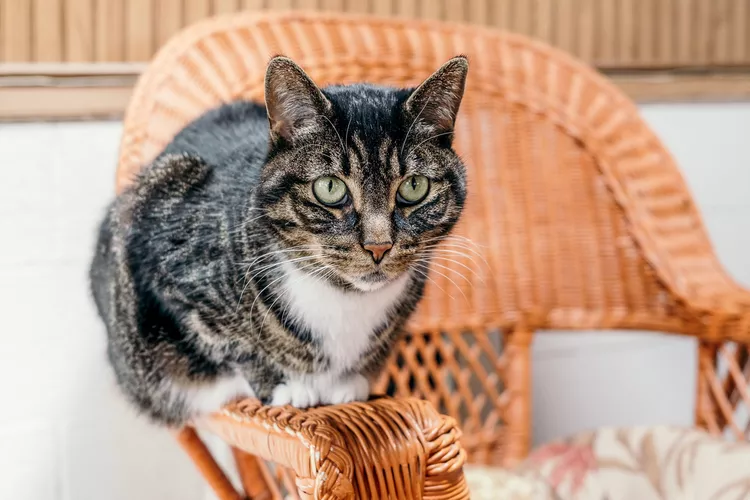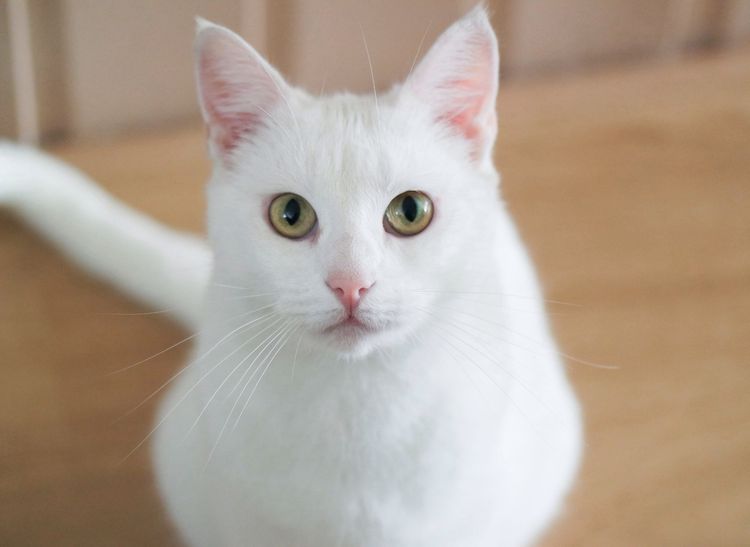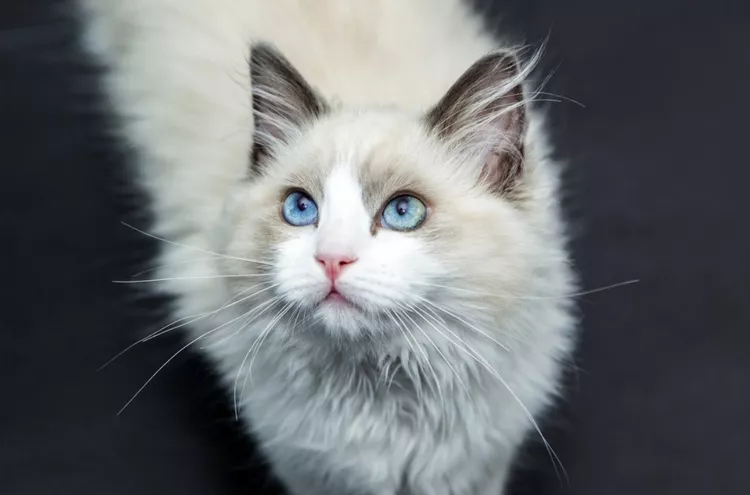
Cats can live a long time. The average lifespan of a cat is about 15 years, which means they'll often even outlive most of our pet dogs. A teenage cat, or even one in their 20s, is not uncommon to see.
Many factors can play a role in determining how long your cat might live. Regular veterinary care, a balanced diet, and a safe environment are crucial for a cat's longevity. Additionally, genetics and lifestyle can significantly impact a cat's lifespan.
Cats have been kept as pets for thousands of years. They originate from the Near East countries where they were domesticated from wild cats to help control rodent populations. These cats spread throughout the world as pets, and we eventually started selectively breeding them for specific traits, thus creating different breeds.
The primary cat breeds were originally bred using cats from four major regions; the Arabian Sea, the Eastern Mediterranean, South Asia, and Western Europe. These four regions have produced cats that have different genetic markers based on what region, or race, they are from.
While it is impossible to know exactly how long a cat will live, some breeds of cats are known to often live longer than others. The Siamese and Manx cat breeds are two that often outlive their cat competition, but other breeds have been recorded as living into their 20s and even 30s. Both purebred and domestic mixed-breed cats have the potential to surpass the average lifespan of the species.
Cats primarily eat meat, so they are considered obligate carnivores, and this should be reflected in the food we feed them. A lot of research has been done to determine the dietary needs of a house cat, so the food options that are available to cat owners are plentiful.
But not all foods are created equal. Adult cats cannot digest large amounts of carbohydrates or lactose, so these are unnecessary ingredients in their food. Carbohydrates can even decrease how much protein is digested, so they are, in fact, harmful to a cat. Proteins, on the other hand, are very important. Cats require a large amount of protein when compared to dogs due to their unique digestive system. Adult cats should receive at least 5.5 grams of protein a day per kilogram of weight. This means the average 8-pound cat (roughly 3.6 kilograms) needs to consume at least 20 grams of protein each day and often much more.
Essential amino acids are also very important to a cat. Taurine, methionine, and cystine are some of these essential amino acids, and without them, important vitamins, and the proper amount of protein, a cat’s health may suffer greatly.
Of course, a cat that doesn’t eat a healthy diet may develop health issues, but parasites and diseases can also affect their health. Some diseases have long-term effects on cats and may also shorten their lifespan.
Poor genetics, immune-compromised cats, and cats that have compromised organ functions might not live as long as healthy cats.
Some cats are considered indoor pets, others are strictly outdoor pets, and others still will be indoor/outdoor pets that split their time between environments. The daily risks that outdoor cats take are much higher than those of an indoor cat, so the lifespan of an outdoor cat is often cut short. Avoiding getting hit by vehicles, hurt by wild animals and eating toxins, finding food, surviving the elements, and being exposed to various parasites and diseases may all be daily challenges for an outdoor or indoor/outdoor cat. The more time a cat spends outside, the greater the risk is of an injury or illness from that environment.
Indoor cats are not exposed to as many risks since they are sheltered inside a secure home. Wild animals and vehicles pose no threats to an indoor cat, their diet is typically controlled, and toxin, parasite, and disease exposures are lessened, especially if they are vaccinated and on preventative medications.
The same is true for big cats like lions, tigers, ocelots, and other wild cats. These cats that reside in zoos often outlive their wild counterparts.
Guinness World Records lists the oldest cat as having lived 38 years and three days. Crème Puff was a domestic shorthair cat that was sometimes fed odd things such as asparagus, eggs, and heavy cream. She was born in 1967 and died in 2005 in Austin, Texas. It is unknown exactly how Crème Puff was able to live to be such an old cat, but a combination of loving care, good genetics, and a safe environment were probably key factors.
While we never have complete control over our cats' lives, we can be sure to offer them a safe, healthy, and loving environment to increase the odds of them living a long life.

75 Unisex Cat Names
Our gender neutral cat names perfect for your feline friend, with a diverse selection of fun and inclusive options to fit your pet's disposition.
Why Does My Cat Stink?
Is your cat stinky? Find out about the causes of bad odors in cats and when it is something to be concerned about. Learn how to help your stinky cat.
Signs of Rabies in Cats
Rabies is a fatal and contagious virus that can affect cats. Learn about the signs of rabies in cats and what to do about them.
Can Cats Eat Dog Food?
Can cats eat dog food? In small amounts, it's unlikely to be a problem, but long-term feeding of dog food to cats can cause health issues and malnutrition.
Exploring the Different Types of Pet-Friendly Beaches
Are you looking for pet-friendly beaches? Learn about the different types of pet-friendly beaches, their locations, and tips for visiting them with your pet.
Pulled Muscles in Dogs
A pulled muscle is one of the most common injuries seen in dogs. What can you do if your dog pulls a muscle and how can you prevent it?
Fibrosarcoma in Cats
Fibrosarcomas are potentially fatal soft tissue tumors that can occur in cats. Learn the causes, treatment, and prevention.
Alopecia in Dogs
Alopecia leads to hair loss and bald spots in dogs. Some breeds may be more at risk. Learn common causes, treatment, and prevention of dog alopecia.
Is Acetaminophen Safe for Dogs?
Acetaminophen is used by humans for pain and fever relief, but is it safe for dogs? Here's what you need to know before giving your dog acetaminophen.
Can Dogs Eat Almonds? Understanding the Risks and Guidelines
Can dogs eat almonds? While a couple likely won't hurt, it's best to avoid feeding your dog this nut. Learn the risks here.
Keeshond: Dog Breed Characteristics & Care
Learn about the keeshond dog, also known as the Dutch Barge Dog. This fluffy spitz breed was bred to guard, but also makes a friendly companion.
Is Rosemary Safe for Dogs?
Rosemary is used both for cooking and as a supplement with many reported health benefits in people, so you may be wondering if it is safe to give to your dog. Rosemary is considered non-toxic for dogs but with some caveats.
7 Hybrid Cats Breeds
Hybrid cat breeds can make appealing pets since they look more exotic than domestic house cats, but they aren't for everyone.
The Best White Cat Breeds to Keep as Pets
Several breeds can result in white cats with long or short hair. Find out the pros and cons of these white cat breeds.
11 Cute Pictures of Ragdoll Cats
Ragdoll cats are known for their beautiful coats and bright, blue eyes. Learn all about the breed, and check out some cute pictures here.
7 Reasons Why Your Cat Eats Paper, and How to Stop It
Is your cat eating paper? Learn why your cat is doing this, and find out how to put a stop to it.
Feist: Dog Breed Characteristics & Care
Feists are small, short-haired dogs developed to hunt squirrels and catch vermin. These high-energy, affectionate pooches make great companion animals.
Dogue de Bordeaux (French Mastiff): Dog Breed Characteristics & Care
Learn about the Dogue de Bordeaux, also called the French mastiff. Although large and muscular, they’re known for their calm and gentle personality.
How to Stop Your Dog From Fearing Men
Many dogs have a phobia of men. Learn how to help your dog overcome its fear through desensitization and training while keeping everyone safe.
Why Dogs Eat Poop and How to Stop Them
Is your dog eating poop? Some dogs do this because of stress or illness. Learn how to prevent stool eating, or coprophagia, in dogs.